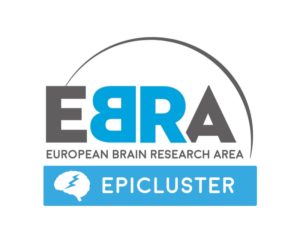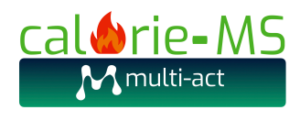Partnerships
MULTI-ACT works with multiple partners from various stakeholder groupings to advance its vision to increase the impact of health research on people with brain diseases. The MULTI-ACT framework aims to allow for effective cooperation of all relevant stakeholders in multi stakeholder health research initiatives. The framework includes tools and guidelines for the governance, the stakeholder engagement and the impact assessment of multi-stakeholder research initiatives. In particular, guidelines are provided on how to maximize and evaluate the impact of Research &Innovation (R&I) on the outcomes that matter to patients in order to enable transformational missions that any health R&I process should aspire to.
Due to its solid scientific foundation and its holistic concept encompassing governance, patient engagement and impact assessment, the MULTI-ACT CRIF is under application by several Institutions, promoting effective institutional changes toward Responsible Research and Innovation (RRI), as claimed by its funding programme “Science with and for Society – New constellations of Changing Institutions and Actors“.
The Multiple Sclerosis Care Unit
To further develop and improve the MULTI-ACT framework, MULTI-ACT has engaged with a potential user of the framework, the MS Care Unit, a multi-stakeholder initiative in the disease area of Multiple Sclerosis (MS) of the European Charcot Foundation (ECF). The overall aim is to implement the MULTI-ACT framework in the specific setting of the MS Care Unit initiative, guide their promoter on how to use the framework and gather feedback on its applicability.
Read more about the MS Care Unit.
EBRA Clusters

The aim of collaboration between MULTI-ACT and EPICLUSTER is to explore the applicability and utility of the MULTI-ACT framework in the context of other brain disease multi-stakeholder initiatives, guide their promoter on how to use the model and take the most benefit from it as well as collect their feedback on the usability of the framework specific to the brain disease area. For this purpose, the MULTI-ACT Consortium explored possibilities of collaboration with EPICLUSTER. EPICLUSTER emerged following a major stakeholder meeting in Brussels in 2018 called EpiXchange that brought together the coordinators of multiple EU-funded epilepsy projects and stakeholders from industry and patient representative groups. This cluster was funded by the European Brain Research Area project (EBRA) in late 2019 as a two-year networking action to enhance the coordination of epilepsy research in Europe.
EBRA was created in 2018 as a catalysing initiative for brain research stakeholders (researchers, clinicians, patients, governments, funders and public institutions) to streamline and better co-ordinate brain research across Europe while fostering global initiatives. Clusters are understood as associations of research projects that can be directed towards basic research, clinical research and/or methodological approaches under a common topic, and disease and/or thematic area.
Read more here.
Read more on the “2nd EPICLUSTER Event Funding workshop & EpiXchange II Meeting” here.
International Progressive MS Alliance

The International Progressive MS Alliance, an unprecedented global collaboration of multiple sclerosis (MS) organizations, researchers, clinicians, pharmaceutical companies and people with progressive MS, has created a partnership with MULTI-ACT that was announced on the occasion of the World Multiple Sclerosis Day celebrated on 30 May 2020.
Read more here.
Global Patient Reported Outcomes on MS Initiative

The Global Patient Reported Outcome Initiative for Multiple Sclerosis (PROMS) is a multi-stakeholder initiative jointly led and coordinated by the European Charcot Foundation (ECF) and Multiple Sclerosis International Federation (MSIF), with the Italian MS Society Foundation (FISM) acting as lead agency on behalf and for the Multiple Sclerosis (MS) movement.
PROMS initiative aims to change society in the way that patient voices, perspectives and preferences are integrated in a scientific manner in the research and care continuum. PROMS’ mission is to maximize the impact of Science with and of Patient Input on the health, healthcare and quality of life of people affected by MS and to represent a unified view on PROs for MS to People affected by MS, Healthcare Providers, Regulatory Agencies and Healthcare Technology Assessment Agencies (HTAs) and all the relevant stakeholders in the Health domain.
In line with the Responsible Research Innovation RRI principle and building on the MULTI-ACT model, PROMS is a mission-driven initiative managed by a multi-stakeholder participatory Governance, composed by working groups with representatives from 5 stakeholder categories across 60 different countries, and a new governance body dedicated to engage the MS community (i.e. the Engagement Coordination Team ECT).
The concept of the ECT was developed within EU-funded MULTI-ACT project to enable a mission/agenda-driven approach and representativeness of the relevant MS community in the people affected by MS engagement strategy.
Read on the Global PROMS Initiative here.
ALAMEDA: Bridging the Early Diagnosis and Treatment Gap of Brain Diseases via Smart, Connected, Proactive and Evidence-based Technological Interventions
H2020 – G.A. 101017558

ALAMEDA’s vision is to research and prototype the next generation of personalized AI healthcare support systems for people with brain diseases and disorders, specifically focusing on the needs of Parkinson’s, MS and Stroke (PMSS) patients’ rehabilitation treatments.
ALAMEDA recognises the centrality of the experiential knowledge of the patients in the design of its innovative disease assessment interventions and the selection of the most suitable technological solutions.
ALAMEDA undertakes the Patient engagement strategy drawn by MULTI-ACT to capture ‘experiential knowledge’ of patients and to use the experience constructively, not only for co-creation purposes, but also for participate in decision making processes in the development of Case Studies.
Read how ALAMEDA embrace the MULTI-ACT patient engagement principles here.
National research projects
MyMood: Developing new patient-reported outcomes on mood disorders in MS. An approach of co-creation through science of and with patient input.
Italian Multiple Sclerosis Society Foundation
The MyMood project is a 12-months study promoted by the Italian Multiple Society Foundation (PIs Ludovico Pedulla, Federico Bozzoli) with the aim to define and test an operational model for co-creation of new Patient Reported Outcomes (PROs) based on science of and with patient input, and to develop a new questionnaire adopting the MULTI-ACT model to better characterize mood disorders in people with MS.
The research plan and methods have been designed following MULTI-ACT guidelines and their implementation and eventual amendments will be supported by an Engagement Coordination Team (ECT), allowing an effective cooperation of all the relevant stakeholders, including people affected by Multiple Sclerosis (MS) and their caregivers.
The first Work Package was indeed dedicated to establish and training the ECT. The new questionnaire will be developed based on the MULTI-ACT co-creation approach, integrating the inputs of the involved groups of stakeholders, as well as reaching a large sample of people with MS.
Read more on the MyMood project (Ludovico Pedulla, Federico Bozzoli) here.
CalorieMS: Calorie restriction as a new therapeutic approach to manipulate immunity and to improve the therapeutic potential of first-line drugs in relapsing-remitting multiple sclerosis.
Italian Multiple Sclerosis Society Foundation

The CalorieMS project is a study promoted by the Department of Molecular Medicine and Medical Biotechnology of the University of Naples Federico II (PI Giuseppe Matarese), funded by the Italian Multiple Society Foundation, with the goal to provide robust evidence that the metabolic shift and reprogramming induced by diet during MS has a synergistic effect with first line Disease Modifying Treatments (DMTs).
The PI claimed the need of bridging the gap between Basic Science, Clinical Trials and Patient Input. Indeed, the role of patients within this research is of extreme importance due to the high difficulty for people (especially for those with a chronic disease such as MS) to follow a diet. Engaging patients in the research process with a solid scientific framework has the potential to maximize efficacy of study’s results in term of uptake in the real setting. For instance, patients may bring their experiential knowledge for anticipating potential barriers for uptake, as well as insights on how to increase motivation and retention to any diet.
The MULTI-ACT patient engagement strategy was adopted with the aim of understanding, measuring and optimizing the impact of the CalorieMS project on the outcomes that matter most to people with MS.
An Engagement Coordination Team was established and trained as first action in order to engage the broader MS community along all the phases of the study.
Read more on the CalorieMS project here.

